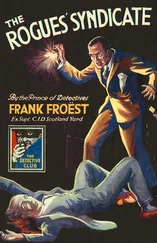It was the universal refrain. Ever since he'd arrived in Tofino, Anawak had been confronted with the same demand: kill the whales. The frustrated fisherman had hit the nail on the head – the fishing grounds were only accessible to the largest factory trawlers, which gave ammunition to those who'd always agitated against the International Whaling Commission, fishing quotas and hunting bans.
Anawak paid for his coffee and went back to the station. The office was empty. He settled down behind the counter, switched on the computer and started to search the web for military applications of marine-mammal research. It was a tedious process. Back at the Chateau, they had access to all the information they needed, but the public network kept crashing, thanks to the problems with deep-sea cables.
He soon found the official website of the US Navy Marine Mammal Program. It couldn't tell him anything he didn't already know – every half-decent investigative journalist had written dozens of articles on the subject – but before long he had found information on a military programme in the former Soviet Union. During the Cold War, a large number of dolphins, sea-lions and belugas had been taught to find mines and retrieve lost torpedoes. According to the Internet, they'd been deployed to defend Soviet warships in the Black Sea. After the collapse of the Soviet Union, they had been transferred to an oceanarium in Sebastopol on the Crimean peninsula, where they'd performed tricks until their new owners ran out of cash for the vet bills and food. Some of the dolphins had ended up in therapy centres for children with autism. Others were sold to Iran, where the trail went dead, prompting the suspicion that their military career had continued elsewhere.
Marine mammals seemed to be making a comeback in strategic warfare. During the Cold War, the arms race had taken a new direction, with America and the Soviet Union each trying to create the most efficient sea-mammal fleet. After the dissolution of the USSR, the world was no safer; already the conflict between Israel and Palestine was spinning out of control and a new generation of terrorists was emerging, capable of sabotaging American warships. Underwater mines were being laid, projectiles went missing, and expensive weaponry sank to the bottom of the ocean and had to be retrieved. It was a job at which dolphins, sealions and belugas proved far more adept than any human or robot: tests showed that a dolphin could find a mine twelve times faster than a diver. Sealions at naval bases in Charleston and San Diego had a ninety-five per cent success rate at detecting torpedoes. Humans operating underwater couldn't see where they were going and had to spend hours in a decompression chamber afterwards, but marine mammals were working in their element. Sea-lions had good vision even when the light was weak. Dolphins could navigate in total darkness by using sonar, giving off a volley of clicks, whose echo they measured with amazing precision to detect the location and shape of any object. Marine mammals could dive dozens of times a day to depths of several hundred metres without tiring. Millions of dollars' worth of divers, vessels, crews and equipment could be replaced by a small fleet of dolphins. And the animals nearly always came back. In thirty years, the US Navy had lost just seven dolphins.
The American marine-mammal training programme was still going strong and there were indications that animals were being used again in Russia for military purposes. The Indian Army had begun a breeding and training programme. Similar initiatives had been launched in the Middle East.
Did that mean Vanderbilt was right?
Anawak was convinced that scouring the depths of the web would turn up details that went unmentioned on the US Navy's website. It wasn't the first time he'd heard of military attempts to subjugate whales and dolphins to full human control. The programme was based on neural research of the kind conducted by John Lilly. Armed forces all over the world were interested in echo-location, a sonar system that outperformed anything man had invented and that still hadn't been fully understood. There were indications that experiments had taken place in recent years that went beyond the bounds of what was publicly acceptable.
But the web refused to tell him anything. For three full hours it maintained its silence until Anawak was on the point of giving up. His eyes hurt, and his enthusiasm and concentration had sunk so low that he almost missed the short article by Earth Island Journal when it appeared on the screen: ' Did US Navy Order Dolphin Deaths ?' The quarterly journal was published by Earth Island Institute, an environmental organisation committed to bringing new ideas to the conservation movement. It ran a variety of campaigns. The journal's staff were heavily involved in the climate debate and had uncovered some serious environmental scandals. A large part of their work was focused on preserving life in the oceans and protecting whales.
The article referred back to an incident that had occurred in the early 1990s when sixteen dead dolphins had been washed ashore in the French Mediterranean. The corpses were all marked with the same mysterious wound – a fist-sized hole on the underside of the neck, through which the lower cranium was exposed. At the time, investigators were unable to explain the presence of the marks, but there was no doubt that the injuries had caused the dolphins' deaths. The episode had taken place against the backdrop of the first crisis in the Gulf, when fleets of American warships were crossing the Mediterranean. The Earth Island article suggested a link to a classified programme of experiments that was rumoured to have been carried out by the US Navy at around the same time. By all accounts, the experiments had failed to achieve their expected success, forcing those involved to conceal the programme's existence. 'Something had gone badly wrong,' an expert had told the journal.
Anawak printed the article and searched through the journal's archive, hoping to find more leads. He was so immersed in what he was doing that he barely heard the Station door opening. It was only when a shadow fell over the screen that he looked up.
'I heard you wanted to talk to me,' said Greywolf.
His suede outfit was as greasy and scruffy as ever, but his hair was tied back in a long shiny plait. His teeth and eyes glinted. It was only a few days since Anawak had last spoken to him, but suddenly he saw Greywolf through different eyes. He exuded strength, charisma and natural charm. No wonder Delaware had fallen for him. 'I thought you were in Ucluelet,' he said.
'I was.' Greywolf pulled up a chair. It creaked as he sat down. 'Licia said you needed me.'
'Needed you?' Anawak smiled. 'I said it would be good to see you.'
'Same difference. Well, I'm here now.'
'How're things?'
'A drink would improve them.'
Anawak went over to the fridge, pulled out a beer and a Coke, and put them on the counter. Greywolf drank half of the Heineken in a single gulp.
'Did I call you away from anything important?'
'Nothing worth mentioning. I was fishing with a few rich pricks from Beverly Hills. All the jerks from your whale-watching have come over to my side. It seems no one's afraid of being attacked by a trout, so I branched out into angling. I'm doing fishing tours of our beloved island's lakes and rivers.'
'I see your attitude to whale-watching hasn't changed.'
'Why should it? I'm not going to cause you any trouble, though.'
'Why, thank you,' said Anawak, sarcastically. 'But right now it wouldn't much matter. I mean, it's pretty handy that you're still on your mission to get vengeance for nature. Tell me again what you used to do for the navy.'
Greywolf looked at him blankly. 'You know what I did.'
Читать дальше












